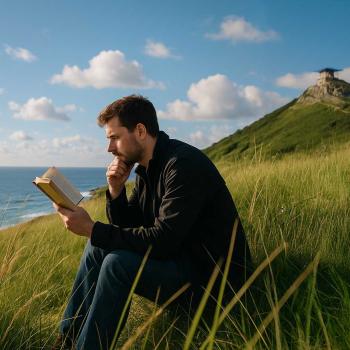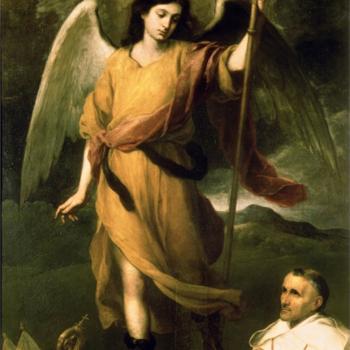Beyond documentaries, narrative films offer the same possibilities for virtual connections. Two recent films spring to mind, Brokeback Mountain and Milk. I don't list these as examples of "perfect" films, and I also recognize that their mainstream nature might distract from their overall effectiveness or potential. However, because they are mainstream, they are easily accessible and many congregants might have already seen them. They are certainly worth re-visiting in the context of this discussion within faith communities.
Brokeback reveals the real threat of homophobia that plagues the gay community and the ways in which gay people must negotiate these fears and live their lives accordingly. Milk reveals that gay rights really are civil rights and that the fight for them is, at heart, a social justice issue. It also brings further into public consciousness the life and work of an often-ignored national hero, Harvey Milk.
And finally, because we often need a good laugh in the midst of the debate, Saved! offers up a humorous take on religious fundamentalism amongst teenagers. When Mary finds out that her boyfriend is gay, she does everything within her powers to turn him straight, even having sex with him. Unfortunately, he's soon shipped off to a "de-gayification" camp, leaving a pregnant Mary behind. How does this former "insider" now navigate her new "outsider" status?
Again, this is not an exhaustive list of films that can spark the discussion. Others include Equality U, The Wedding Banquet, and But I'm A Teenager. What matters is that an open and honest conversation ensues. To non-religious observers and the gay community, the CBF's decision to cancel the conversation must seem little different from the SBC's decision to oust Broadway Baptist Church in Ft. Worth.
This article originally appeared on the Pop Theology website.
J. Ryan Parker is pursuing a Ph.D. at the Graduate Theological Union in religion and the arts with a focus on film. His research interests include the history of religious cinema, the relationship between cinema and the church, religious cinema after The Passion of the Christ, and the affinities between German Romantic landscape painting and the films of John Ford. He is also the creator of and main contributor to Pop Theology (www.poptheology.com), a website that explores the intersections of religion and popular culture. He received an M.Div. from the Divinity School at Wake Forest University.




